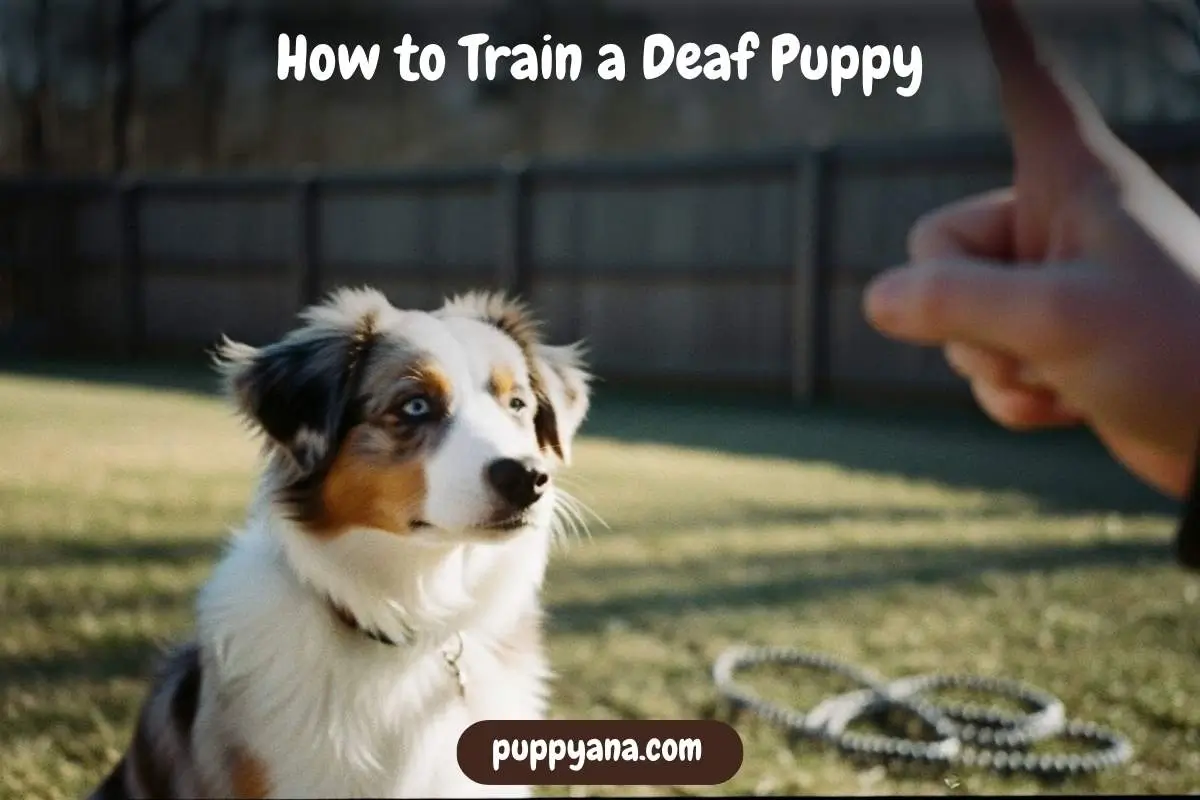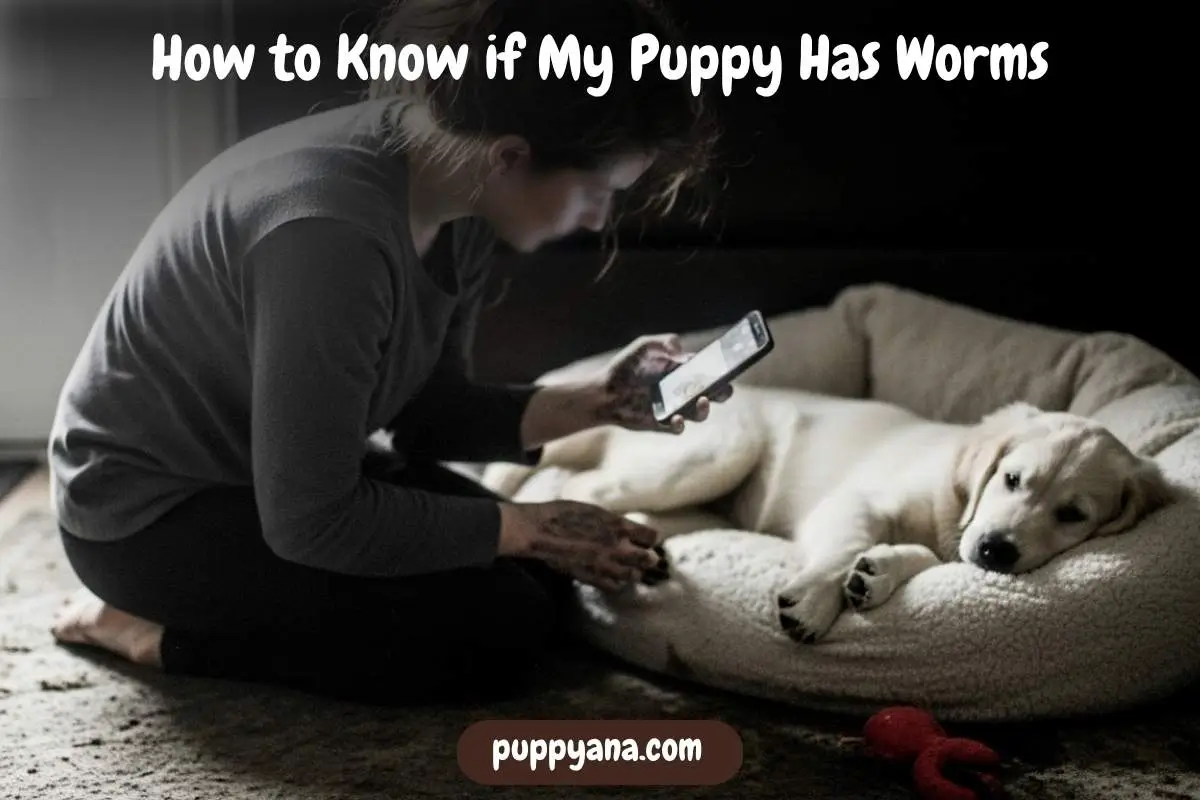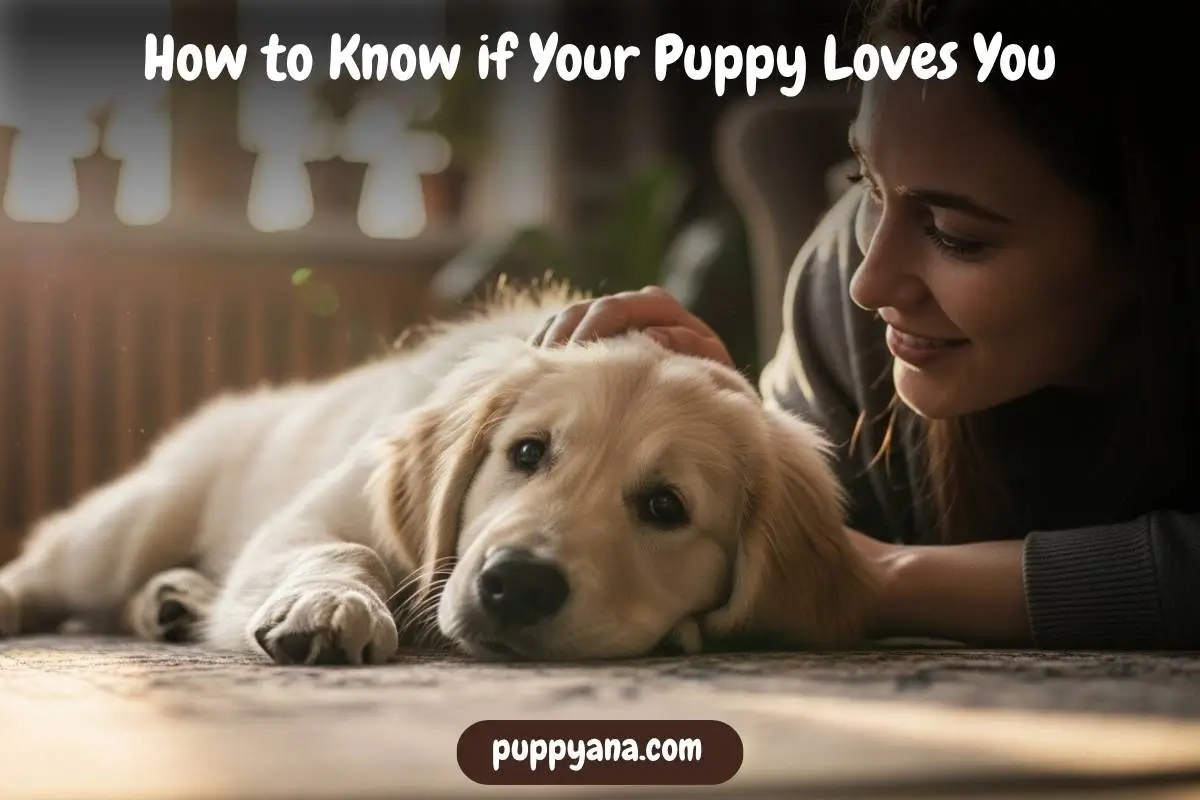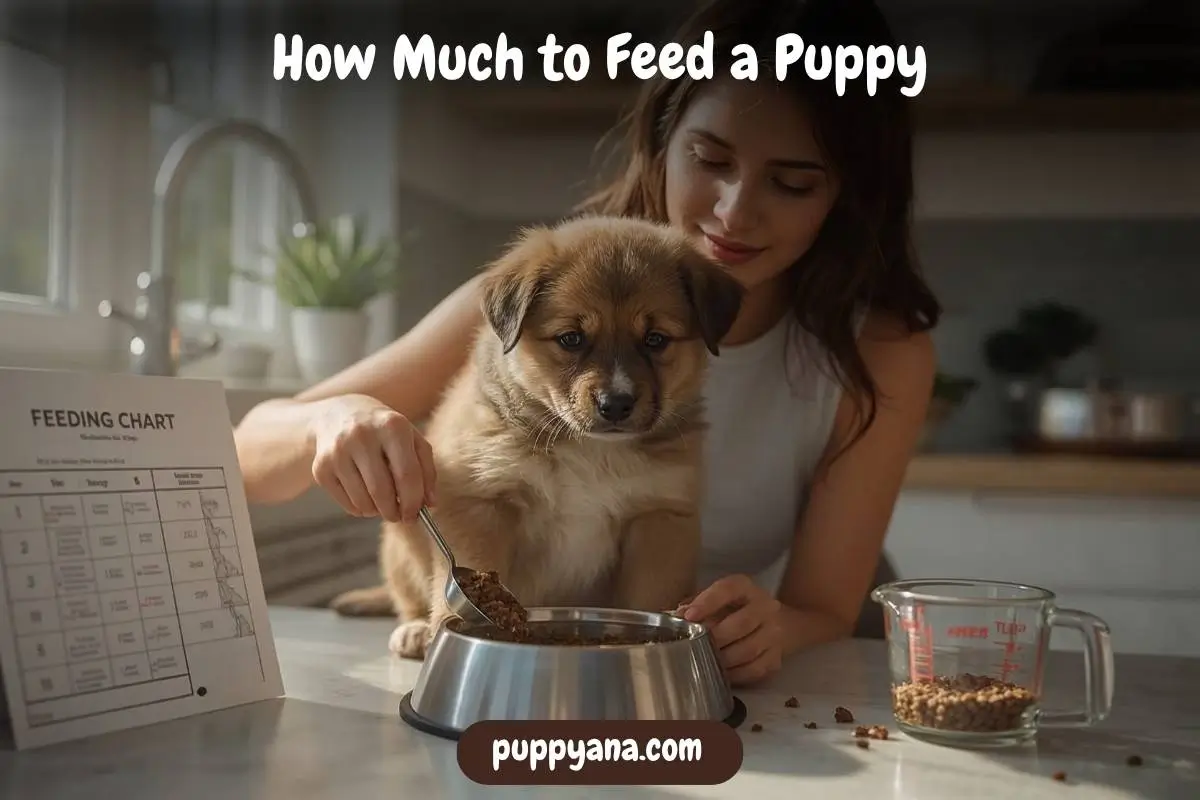Puppy teeth are tiny, sharp, and surprisingly painful. Whether your puppy is sinking them into your socks, arms, or sleeves, it can leave you wondering what went wrong, especially after a calm cuddle moment turns into a full-on chew session.
If you’re searching how to stop a puppy from biting, you’re far from alone. Every new puppy owner deals with this phase. Biting, nipping, and mouthing are all part of how puppies learn about the world. But it’s also one of the most frustrating behaviors if you don’t know how to respond calmly and consistently.
This guide walks you through what works in the real world, not just theory. You’ll learn:
- Why puppies bite and when it starts
- What biting means at different ages
- How to teach them better habits without shouting or punishment
- What tools, routines, and responses actually make a difference
- When biting becomes a bigger concern and needs expert help
Our team has raised hundreds of puppies, from fosters to service dog hopefuls, and every single one of them has had their “bitey stage.” With the right steps, this phase becomes a learning opportunity, not a battle.
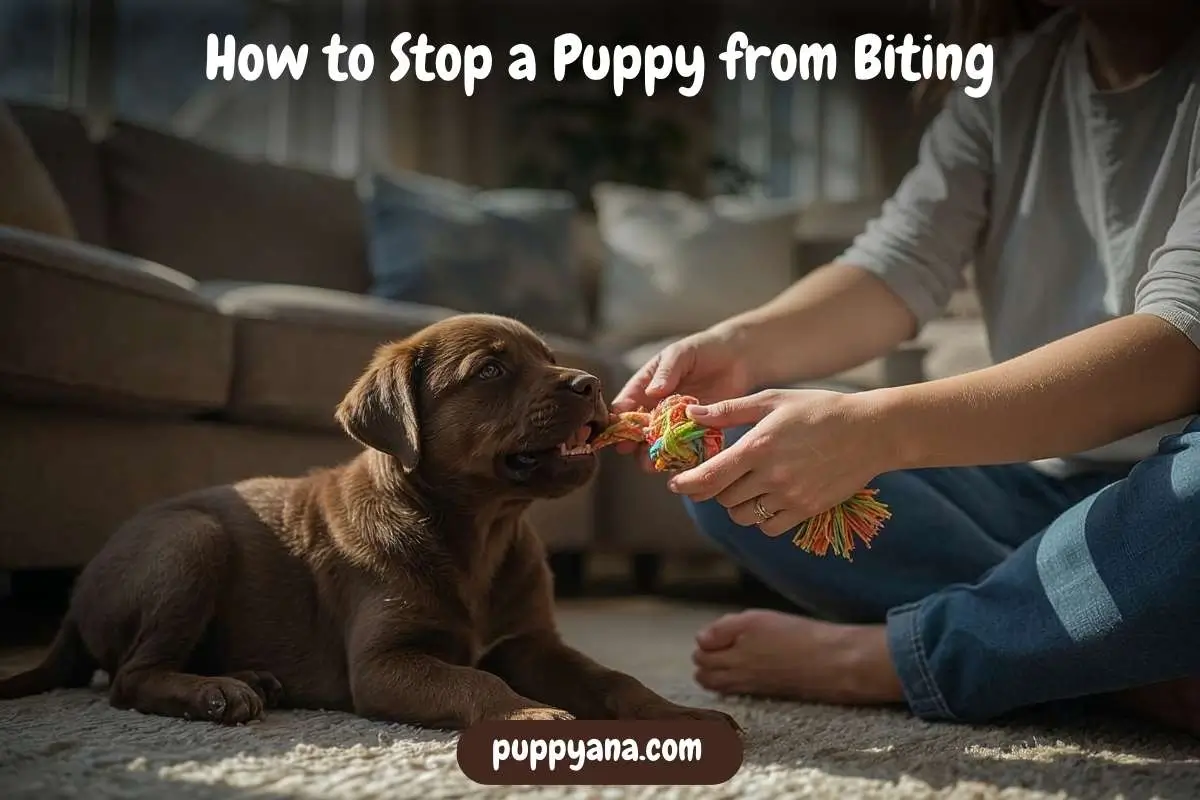
Table of Contents
ToggleWhy Puppies Bite and What They’re Trying to Tell You
Biting is normal puppy behavior. Young dogs use their mouths to explore, just like toddlers use their hands. Puppies bite when they’re:
- Teething
- Playing
- Overtired
- Overstimulated
- Frustrated or excited
- Seeking attention or feedback
In our experience, most biting comes from excitement overload, especially during play or transitions like putting on a leash or saying goodbye. Puppies haven’t yet learned self-control, so they “act out” using the only tool they have: their mouth.
Early biting does not mean aggression. This is the biggest worry we hear from first-time owners, especially when their puppy growls or bites harder than expected. But puppy biting during play is usually normal and healthy, as long as it happens in short bursts and your pup can calm down afterward.
During teething (usually 12–20 weeks old), biting also increases. Gums get sore and chewing offers relief. In these cases, the best “training” is simply giving your dog better things to bite than you.
Use Calm Redirection Every Time
The first and most important rule in stopping biting? Do not yank your hand away while yelling. This excites them even more.
Instead, replace your hand or sleeve with a toy. Keep one close at all times, soft tugs, puppy-safe chews, or silicone teethers. When your puppy bites skin or clothing, calmly say “uh-uh” or “gentle,” then immediately offer the toy.
After using this method with hundreds of puppies, we’ve learned it takes dozens, sometimes hundreds, of repetitions before they make the connection. Real progress happens when:
- You respond the same way every single time
- Every family member does the same
- You keep replacements (chew toys) at arm’s reach
In one of our PuppyAna fosters, a 9-week-old Border Collie named Mimi developed a constant habit of nipping ankles when excited. The fix wasn’t more walks or warnings, it was keeping a stuffed tug toy hooked to a belt clip. She quickly learned to bite the toy instead.
Set Up Smart Play Sessions
Puppies have short energy bursts. Trying to let them “play until tired” without structure can lead to wild, overstimulated biting.
Instead of open chaos, structure your playtimes to teach control.
What works:
- Use 5-minute play windows followed by 5 minutes of calm
- Play tug, fetch, or chase in soft zones (not wrestling)
- Pause play often to let your pup think and reset
- End play if biting starts, walk away, or freeze silently
The message is this: fun stops when biting starts.
This is easy to forget when your puppy is being cute or silly, but it’s one of the strongest lessons they’ll ever learn. Stop mid-play, turn away, and look bored for 10 seconds. Then go back to gentle toy play.
It’s not mean. It’s manners.
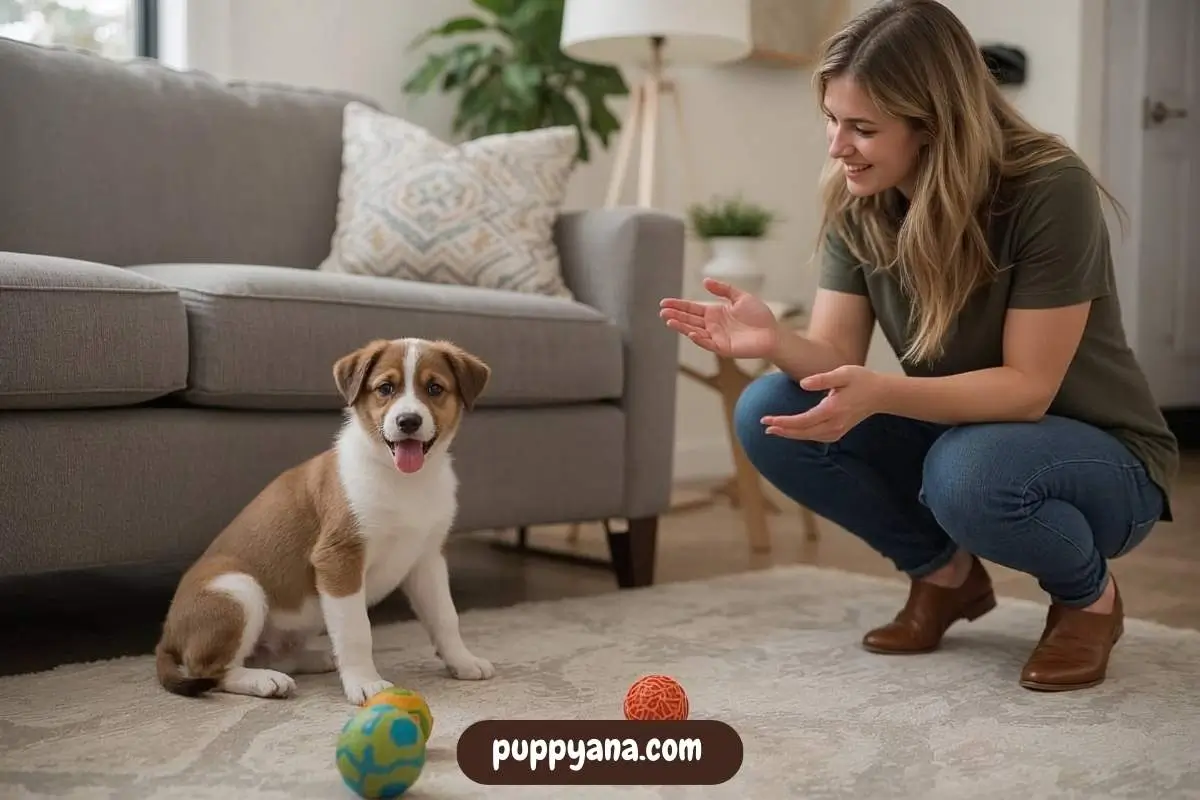
Give Frozen Teething Toys
If your puppy is biting more than usual between 12 and 20 weeks, they’re likely teething. Chewing feels good on sore gums.
A common question is: How do I stop a puppy from biting me during teething? The answer is simple, give them better biting options.
Our team’s go-to tools:
- Frozen carrots – crunchy, edible, gentle
- Silicone puppy chew toys – textured and freezer safe
- Rope toys soaked in broth and frozen – soft to chew on
- KONG toys filled with frozen wet puppy food
We once had a teething Corgi named Bella who couldn’t resist biting hands. Her overnight fix? A frozen Chilly Penguin toy filled with pumpkin. It kept her busy (and pain-free) for 20 minutes straight.
All biting is not “bad.” If they’re biting for relief, your job is to redirect biting behavior to a safe item, not punish the need.
Socialize with Well-Behaved Adult Dogs
Sometimes puppies bite just because they don’t know better, and humans aren’t always the best teachers.
That’s where a calm adult dog becomes a secret weapon.
Well-behaved adult dogs correct puppies with subtle cues like freezing, lip lifts, or even a harmless bark or shoulder check. These natural corrections teach puppies more about bite control than humans often can.
Of course, only do this with vaccinated, balanced dogs. Puppy classes or trainer-monitored playgroups are great places to observe this in action.
One of our PuppyAna mentors paired a wild play-biter puppy with a five-year-old Goldendoodle. After a week of daily play, the biting puppy went from “terror” to totally polite.
Not every dog will tolerate wild puppies, so always go slow and choose the right adult dog.
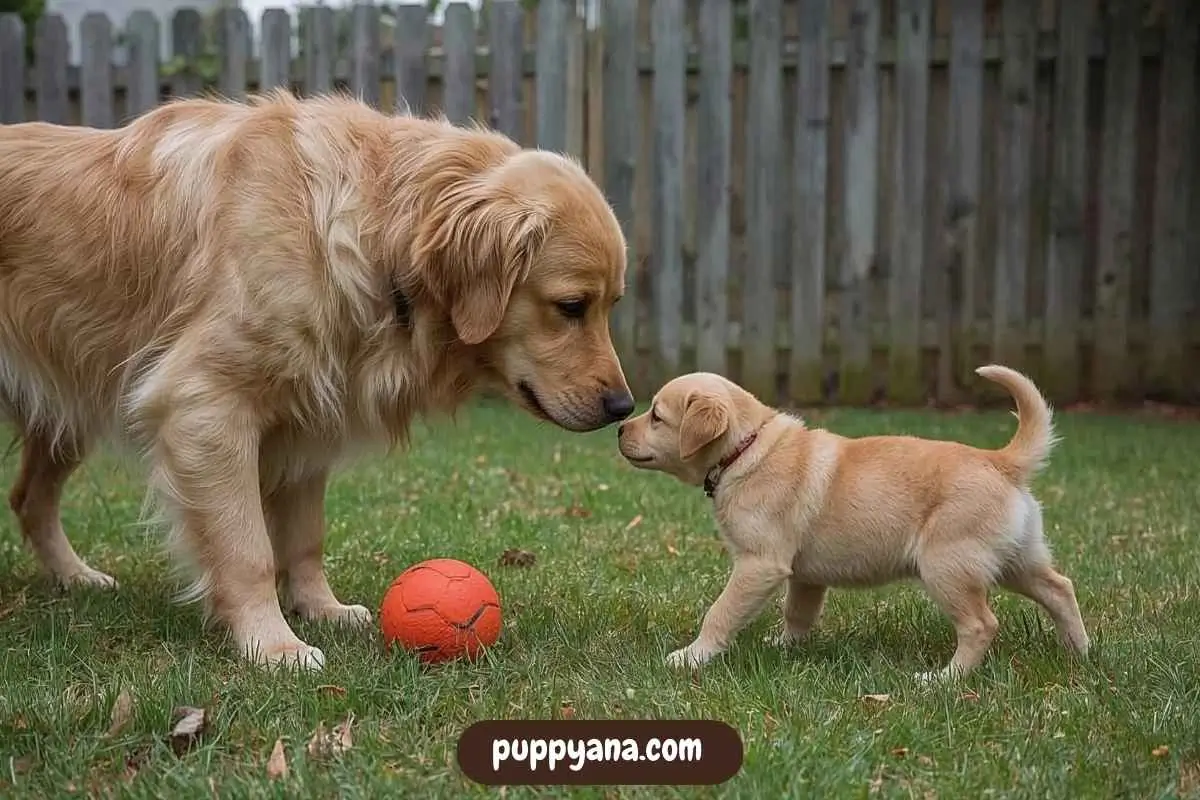
Don’t Use Harsh Punishments
Physical punishment like holding a puppy’s mouth closed, pushing their nose, or loud scolding tends to backfire. It either scares them or makes them think rough behavior is a game. The ASPCA’s advice on positive puppy training reminds us that punishment can increase fear or aggression down the road.
Instead, be quiet, disengage, and hold your boundaries with consistency.
The goal is teaching your puppy how to make better choices, not to make them fearful. Fear often reinforces defensive biting later in life, which is much harder to fix.
In our programs, we carefully track behavior changes over time. We’ve seen the best long-term results with calm training, positive redirection, and trusting relationships, not force.
Build a Routine That Includes Rest
Overtired puppies are crabby, just like toddlers. And tired puppies bite more.
If your puppy starts biting more in the evening, it may be what we call “puppy witching hour.” This usually happens when they’re just past due for a nap but won’t nap easily.
Try this solution:
- Schedule a rest block after every hour of play or activity
- Create a soft crate or pen zone with calming toys
- Lower the lights and reduce the loud noise
- Stick to the same daily nap and bedtime routine
The more consistent your day is, the calmer your puppy becomes. Calm puppies bite less often.
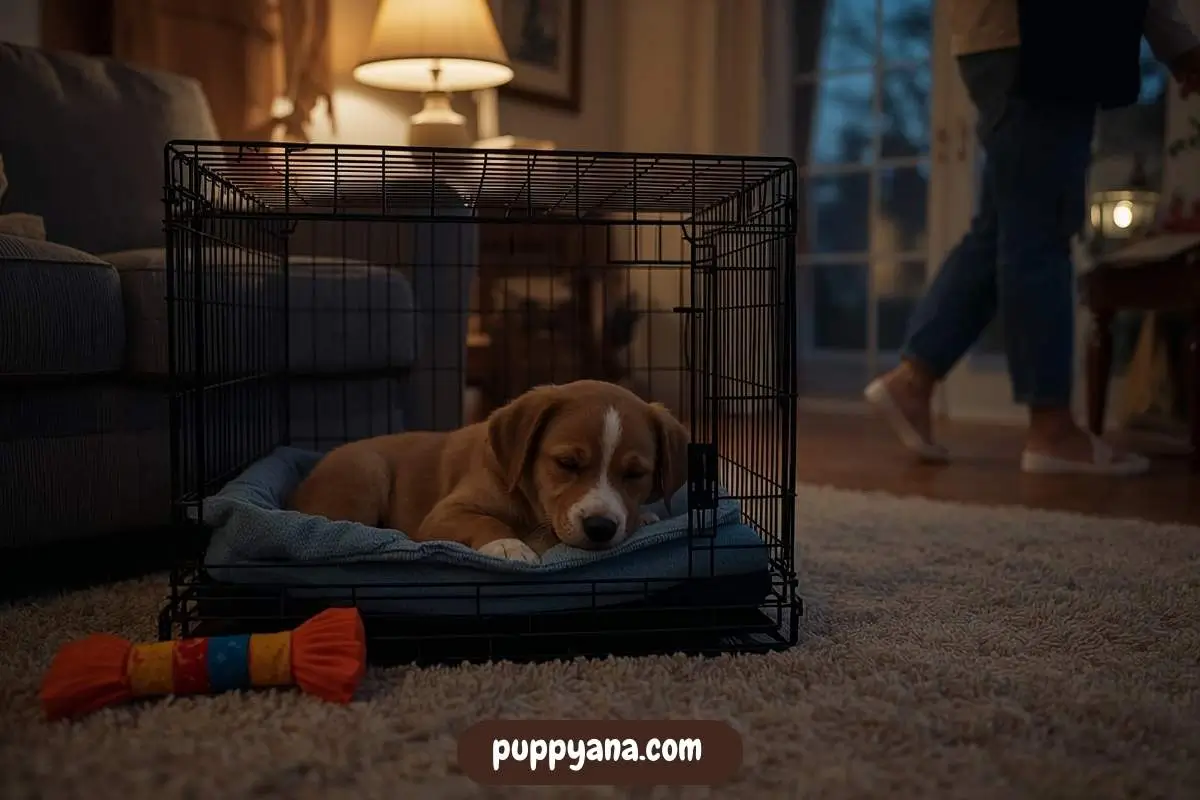
Use Commands Like “Gentle” or “Leave It”
Training your puppy to understand words like “gentle” or “leave it” is incredibly helpful. These cues help shift their focus and give you control without raising your voice.
Even before they know your commands, your tone and timing matter.
- Say “gentle” in a low, slow voice
- Redirect immediately with a toy
- Wait until your puppy calms, then praise softly
- Practice “leave it” with treats and gradually build up to using it during play
This worked like magic for one of our PuppyAna board & train pups, Remi. He learned “leave it” in two days using treat control, and his mouthing faded almost entirely by 14 weeks because he had tools to manage himself.
Give Puppies Time to Learn
Learning how to stop a puppy from biting is not about fast results, it’s about gentle repetition.
Puppies are young. They need time to develop motor control, learn your language, and figure out how to behave in a human world. Biting fades naturally by six months of age in most well-trained puppies—but the habits you build now last a lifetime.
Overcorrecting can slow learning. Under-correcting can build bad habits. Stay in the middle, be calm and direct, and trust that your puppy will grow out of it, with your help.
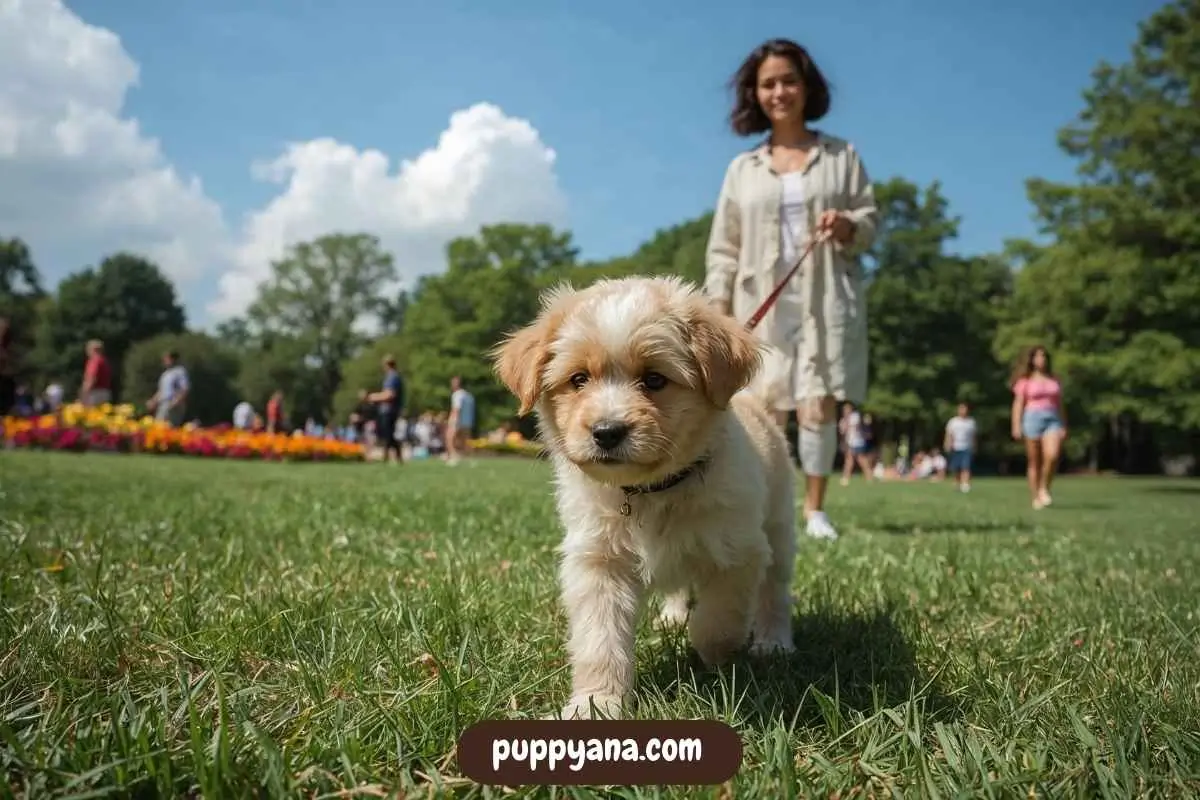
Conclusion
So, how do you stop a puppy from biting?
You start by understanding it’s normal, short-lived, and completely fixable. With the right mix of calm reactions, consistent redirection, and bite-friendly toys, your puppy will learn polite play in time.
To recap:
- Replace biting with toys (over and over again)
- Manage play to prevent overload
- Soothe teething with frozen chew items
- Let calm adult dogs help teach manners
- Avoid yelling or punishment
- Use verbal cues like “gentle” and stay consistent
- Build structure into sleep, food, and play
We’ve seen bitey pups turn into therapy dogs, cuddle champions, and off-leash hiking pros, just by learning one step at a time.
Give your pup the tools they need and a little patience. You’ll get there, and they’ll grow better because of you.
Frequently Asked Questions
At what age do puppies stop biting?
Most puppies grow out of intense biting between 4 and 6 months old, especially if trained calmly.
Is biting a sign my puppy is aggressive?
No, early biting is part of learning. True aggression is rare in young puppies.
Can teething cause more biting?
Yes, teething around 12–20 weeks triggers chewing for comfort.
What if my puppy bites harder during play?
Redirect with toys and end play briefly. Don’t use hands during rough play.
Is crate rest helpful for a biting puppy?
Yes. Overtired pups tend to bite more, and crate naps reset calm behavior.
Should I allow play with other dogs to help biting?
Only with calm, vaccinated adults. Let puppies learn bite control safely.
Are some breeds more mouthy than others?
Yes. Herding, retrieving, and high-drive breeds often nip more but respond well to structure.
Can I use bitter spray to stop biting?
You can try it, some owners have mild success, but it’s not a long-term fix without training.

